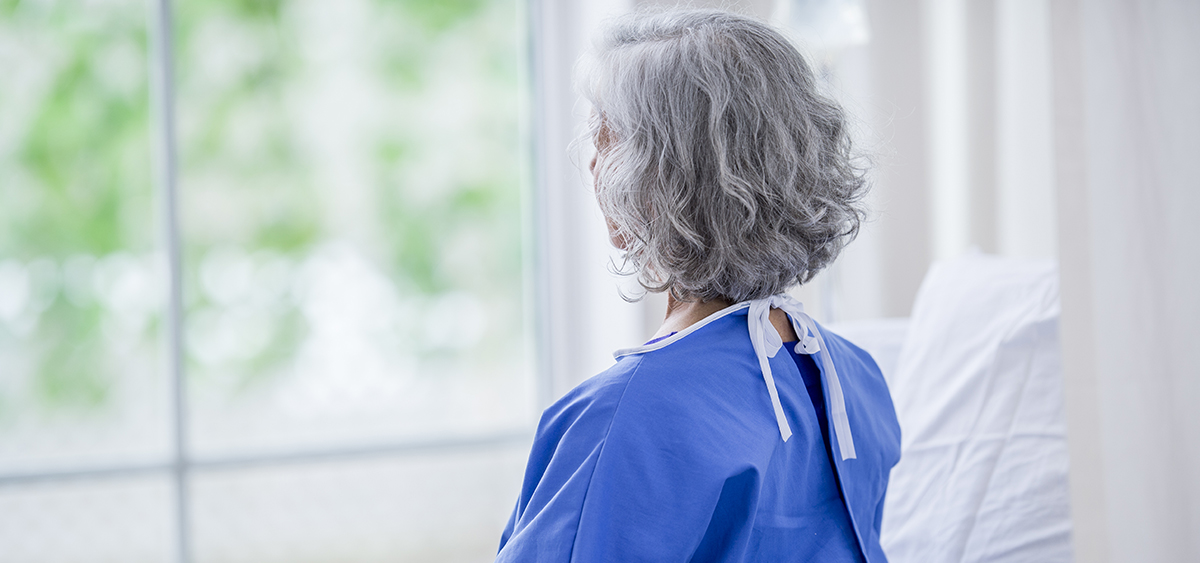
Breast Biopsies: Your Questions Answered
-
If your health care provider spots something new or unusual on your breast imaging test, there’s a good chance they’ll recommend a breast biopsy.
It’s completely normal to feel nervous or anxious about this procedure. But knowing more about biopsies, how they work, and why they are ordered may help ease your concerns just a little bit. Dr. Richard Bleicher, a breast cancer surgical oncologist at Fox Chase answered some of the questions that may be on your mind.
Q: What is a biopsy—and does it mean I have cancer?
A: A biopsy is a procedure in which a small sample or lump of suspicious tissue is removed and taken for testing in a lab. Biopsies are the only way to know for sure whether a lump or growth is cancerous. But having to undergo one doesn’t necessarily mean that you have cancer. In fact, “the majority of biopsies that are performed do not end up finding cancer,” Bleicher said.
Q: What happens during a breast biopsy?
A: That depends on which type you have. There are several different types of diagnostic breast biopsies. The following types are minimally invasive and the most common.
- A fine needle aspiration involves inserting a tiny needle into the tissue and pulling out fluid or a small clump of cells.
- A core needle biopsy uses a larger needle, which remove slightly more of the suspicious tissue and allows the pathologist to better determine more about the sample removed (such as what type of cancer it is, if there is cancer present).
Both of these biopsies can be guided by feel (if the lump can be felt on examination) or by imaging technology such as ultrasound, mammogram, or MRI to guide the needle into place.
The procedure your doctor recommends will depend on factors like the size of the suspicious mass and where in your breast it’s located. However, most patients undergo core needle biopsies, Bleicher said. Doctors are able to take a bigger sample with this type of biopsy than with a fine needle aspiration, so they can give your doctor more information about the suspected cancer.
Your physician may have a reason to remove a larger sample or possibly the whole area of suspicion. This could be done through an open breast biopsy - a surgical procedure where either a portion (incisional biopsy) or all (excisional biopsy) of the suspicious area is removed.
If the tissue sample turns out to be cancerous, your doctor might recommend a sentinel lymph node biopsy. This is a surgical procedure used to determine whether cancer diagnosed in the breast has developed the ability to spread to the lymph nodes or other organs.
Q: My doctor recommended a biopsy—but isn’t it better to just have the lump removed?
A: No. Simply removing any suspicious tissue might seem like a smart move, but most biopsies don’t actually find cancer and the needle biopsy is accurate with fewer side effects and risks. So, in the vast majority of cases, undergoing a minimally invasive test like a fine needle or core biopsy is the best option. This is because it can help avoid unnecessary anesthesia, and surgery with its associated discomfort, and you also won’t have a second incision, Bleicher said. Your doctor can help you determine the best option.
Q: Does it matter where I get my breast biopsy?
A: Yes. There are a few important things to look for when choosing a center to have your breast biopsy done. First of all, pay attention to the volume of breast biopsies the center performs. Fox Chase is a high-volume academic center. Our expert clinicians set the standard of care for breast cancer—and see many breast cancer patients every single day. Another qualification to look for is accreditation. Fox Chase is accredited by the National Accreditation Program for Breast Centers (NAPBC). This means they’re committed to providing the best possible care for breast cancer patients. And a third important determining factor is a center that has physicians specializing in breast conditions across a number of areas from surgery to pathology to radiology.
When you’re diagnosed with a suspicious breast condition, it can be a very scary time. Undergoing testing and waiting for the results can be especially stressful. There are many factors you can’t control, but you do have control over where you undergo testing and seek treatment. Fox Chase is always here to help.
To make an appointment at the Fox Chase Cancer Center, call 888-369-2427 or fill out our online form.
